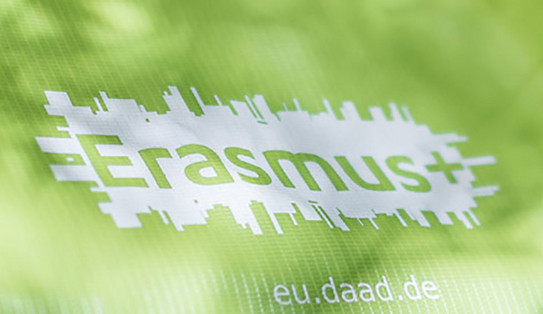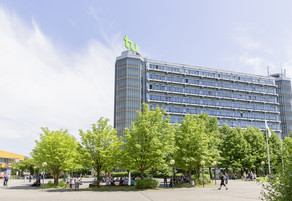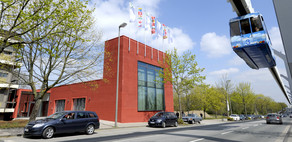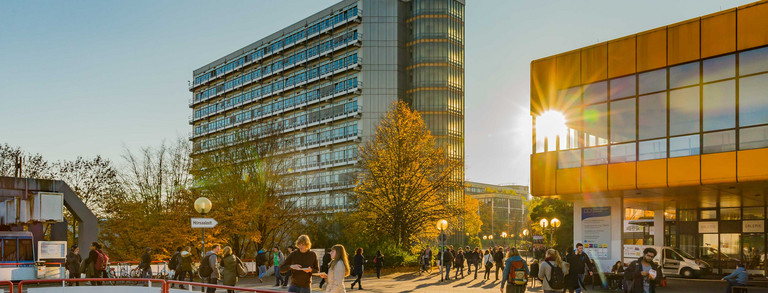First-generation Students
Students whose parents did not study sometimes face more challenges in their own studies, especially when it comes to going abroad. They may receive less support from home and often are not in the best financial position to bear the additional costs of a stay abroad. In order to overcome these hurdles, precisely this group is eligible to receive additional funding in the Erasmus+ program with a monthly Inclusion Top Up.


Further Testimonials:
The DAAD Auslands-Correspondents also share their stories about topics that are most important for first-generation students (in German). You will also find a video there from the organization www.applicaid.org (in German). Here students (and former students) who themselves belong to an educationally disadvantaged group and have received a scholarship pass on their experience free of charge and offer individual help with the application process.
Erasmus+ Inclusion Top Ups for Stays in Europe (Program Countries)

The new program generation of Erasmus+ is now even more inclusive and focused on creating equal opportunities. With its new forms of mobility, additional funding opportunities and broader target audience, the program makes stays abroad more feasible for even more people by breaking down potential barriers to going abroad.
First-generation students who go abroad with Erasmus+ stay abroad may apply for a supplemental grant of 250 EUR per month in addition to the regular Erasmus+ mobility grant. Please note the conditions below. The stay abroad must take place in an Erasmus+ Program Country (KA131, beginning in project year 2022). Stays in so-called Partner Countries - like the United Kingdom - qualify beginning with the project year 2023/24 (stays from approximately August 2023).
Erasmus+ Outgoings can receive assistance with the Inclusion Top Up from
- Hella Koschinski (studies)
- Laura Hope (internships)
Neither parent or guardian has received a degree from a university or university of applied sciences.
A degree from a vocational school leading to a qualification comparable to a university degree is to be regarded as an academic degree. A master craftsman's diploma is not to be equated with an academic degree in this context.
Courses of study completed abroad by one of the parents that are not recognized as such in Germany (e.g. physiotherapy) are deemed to be academic degrees within the scope of the eligibility criteria for receiving the supplementary grant, so that there is no entitlement to the additional funding.
Erasmus+ Studies: You will receive a separate email with a Honorary Declaration Form (Ehrenwörtliche Erklärung) after you have been accepted into the Erasmus+ program. In this email, important information about the Social TopUps and the declaration of honor are attached.
Erasmus+ Internships: When you apply for the Erasmus+ grant be sure to mark the appropriate box on the application form and upload your Honorary Declaration Form (Ehrenwörtliche Erklärung). The template is available in the application materials. However, due to limited resources we recommend applying as early as possible!
Proof can be shown through informal statements of parents' educational qualifications and an Honorary Declaration from the parents.
Please note that you must keep all supporting documents regarding Inclusion Top Ups as the university will conduct random verification checks. Upon request you will need to promptly turn in all documents.
Information Sources
TU Dortmund Talent Scouts
The Talent Scouts support pupils and students who come from an environment that is not always able to support them in all aspects of choosing a course of study or a career. They support and accompany the talents and offer targeted events.
meet! Mercatur Europa Tour for the first stay abroad
This program gives new students the chance to experience Europe's diversity: You will be supported in your first steps abroad, get to know your strengths and step outside of your comfort zone. (especially for first-generation students) (in…
Arbeiterkind.de
Arbeiterkind.de encourages young people from families without college experience to by the first in the family to go to college and accompanies them throughout their studies, all the way to graduation and their career start. (in German)
Aspire Leaders Program
Low-income first generation students from across the globe can hone their leadership skills in this free online program.

Contact
E-mail Inquiries
General inquiries: going-abroad @tu-dortmund.de
Erasmus+ study abroad: erasmus-outgoings @tu-dortmund.de
Office Hours
(Only) Erasmus+ Study Abroad:
Office hours via telephone/zoom with Hella Koschinski: by prior arrangement
Tel.: 0231 755-6247
Office hours in presence: only with appointment
Tue 9:00-12:00
General Inquiries - Outgoings (Studies/Internships/Short Programs):
Open office hours (no appointment necessary) with Laura Hope via telephone / Zoom
Tel.: 0231 755-4728
Mon 10:00-11:30 und 13:30-15:00
Tue 10:00-11:30 und 13:30-15:00 (no advising the morning of 8.7. - come to our event at 9:30!)
Do you need to speak to us in person?
Office hours in presence only with an appointment

![Eat & Read [Translate to English:]](/storages/international/r/Bilder/Veranstaltungen/Eat___Read/waffel_plain_buecherturm.jpg)









